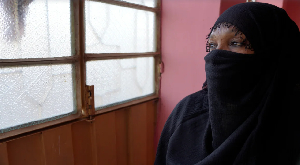Kumasi, July 19, GNA- A total of 500,000 people in five regions of the country are expected to benefit from potable water and toilets to be provided by the Community Water and Sanitation Agency (CWSA) by 2009. The beneficiary regions are Ashanti, Brong-Ahafo, Upper East, Upper West and Western.
The World Bank, Government of Ghana, District Assemblies and beneficiary communities are funding the project at the cost of 41 million dollars, under the Small Towns Water and Sanitation Project. Mr. Arthur M. Swatson Junior, task team leader for the Small Towns Water and Sanitation Project of the CWSA, announced these at a two-day workshop organized by the CWSA for stakeholders in Kumasi on Monday. The event, which attracted over 70 participants from the beneficiary regions sought to adopt effective measures towards the successful implementation of the Project.
Mr. Swatson Junior said 40 districts, municipal and metropolitan assemblies in the beneficiary regions were assisting in the implementation of the scheme.
He stressed that so far 300,000 people have benefited from potable water and 200,000 people would enjoy the facility by the end of 2009. Mr. Swatson Junior said the Project entailed the integration of water, sanitation and education on hygiene and capacity building for the assemblies, communities and agencies involved in the implementation of the programme.
He said beneficiary communities would be made to possess and manage facilities provided by CWSA to ensure their sustenance. Mr. Swatson Junior explained that the Project was aimed at contributing meaningfully towards the attainment of the Millennium Development Goals.
Mr. Ofori McCarthy, the Ashanti Regional Director of the CWSA, said a number of communities in the region were provide with boreholes fitted with pumps to improve upon the water situation those area. He mentioned Boanim in the Afigya-Sekyere District, Jachie-Pramso and Foase in the Bosomtwe-Atwima-Kwanwoma District, Kwaso, Onwi and Juaben in the Ejisu-Juaben District as some of the beneficiary communities.
Mr. Ofori urged the participants to apply skills and knowledge acquired at the workshop appropriately to ensure the success of the Project.
General News of Thursday, 19 July 2007
Source: GNA
















